The Global Meeting on Equinox
Relating
to people, planet, past, present, and future
What it means to be human
Meet the speakers
See the program and sign up here:
https://www.globalbildung.net/what-it-means-to-be-human-2025-march-22/
In order of appearance
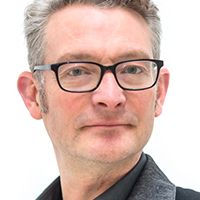
Chris Speed
Australia
Chris Speed is Professor of Design for Regenerative Futures at RMIT, Melbourne, Australia, where he collaborates with a wide variety of communities and partners to explore how design provides methods to adapt toward becoming a regenerative society.
Navigating Planetary Pedagogies Through Multiple Timescapes
Chris will explore how conceptions of time shape our approach to planetary challenges and education. Western education operates within the “mean time” of European modernity—a linear, standardised progression that underpins knowledge and value systems. However, this framework fails to acknowledge the plural timescapes that coexist across cultures, ecosystems, and species.

Melissa Newton-Turner
Australia
Melissa is a drama educator and consultant based in South Australia. She delights in teaching drama across all education sectors and takes great joy in collaborating with theatre companies and artists in the development and implementation of their schools’ programs. Melissa is completing her Doctor of Education thesis, which investigates the influence of live theatre on generalist primary school teachers’ drama pedagogy
Beyond the school gate: The value of fostering relationships between schools and theatre companies
Melissa will address the importance of relationships between schools and theatre companies to enable teachers and students to engage in authentic theatre experiences. She will also highlight the necessity of these experiences to foster students’ understanding of their relationship to themselves and to their world.
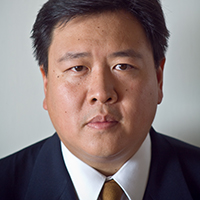
Pindar Wong
Hong Kong
Pindar is an internet pioneer and will be speaking about how digital technologies can help us create new kinds of money that allow us to regenerate healthier economies.
Relational Money: Regenerating money through relations
Pindar will illustrate E-Guanxi (EG), the value extraction of data flows, in its most obvious and natural educational setting by introducing the ”Bildung Architecture’ that is needed to incentivize re-industrialization and retooling in the era of sustainable, scalable sharing and mass customization.
Note Well: To fully understand the elements of the Bildung Architecture, please download and experiment with Arizona State University’s ‘ASU Pocket’ before the talk.
https://pocket.asu.edu
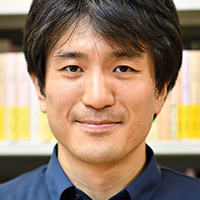
Hironobu Shindo
Japan
Hironobu Shindo is an associate professor of lifelong learning and cultural policy at The University of Tokyo Graduate School of Education, and a visiting researcher at The UNESCO institute for lifelong learning.
Rethinking Ningen(Human) and lifelong learning
In Japan, one of the words that represents “human” is ningen. By exploring its meaning, I would like to share some open questions from the perspective of lifelong learning: What does it mean to be human? What global issues are we currently facing? And what can we do to address them?
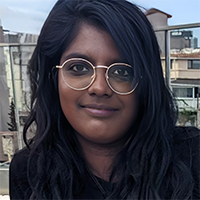
Sanchita Shekhar
India
Sanchita Shekhar is a passionate advocate with extensive experience in peace, conflict resolution, and research. She has worked with refugees, prisoners of war, and tribal communities, conducting impactful research on health systems and policy analysis. Currently, she works with Jan Swasthya Sahyog to shape healthcare policy in India.
K for Knowledge
Knowledge and how we relate to and integrate different forms of knowledge. The people who possess each type of knowledge (i.e. indegenous, traditional, modern and post-modern) have very different ways of seeing the world and different structres they adhere to. This makes communicating across knowledge systems difficult. Let’s deconstruct this during this talk.
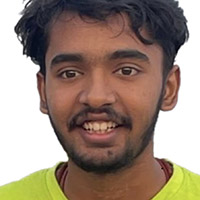
Sahil Jha
India
Hi, I’m Sahil, and I’m just 19 years old.
My journey began when I was 16, inspired by the global crisis of land degradation and the Save Soil movement, I embarked on a solo cycling campaign across India in 2022. I cycled 15,000 km across 15 states, advocating for policy reforms to save our soil.
K for Knowledge
What if I told you that one day, 20 years from now, when you and your family sit down for breakfast, you will have nothing but empty plates in front of you?
Yes, this may sound shocking, but this is the reality we may face if we don’t act now.
Sahil will share his journey around the globe with us.
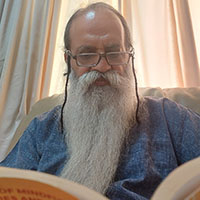
Barun Mitra
India
Barun Mitra (b. 1960) has been on a long journey to rediscover the relevance of Gandhi’s message as a practitioner in the 21st century, if any, and if yes, why. An engineer by training, he has worked on a range of public policies for over 25 years in India. That is when he began to realise the ever widening gulf between the public and the policies, and it is then that Gandhi began to appear on his horizon.
Gandhi’s conception of Basic Education: Is it relevant in the 21st century?
What is education and what it could be: Education is widely seen as a path towards intellectual development, or practical skills relevant for employment. Yet, education is fundamentally a way to internalise a culture of learning by doing, so that learning becomes a lifelong companion. Learning then could be a joyful exploration of life, cultivating a capacity to finding new new meanings both in the mundane and the grand aspects of life and experiences.
Gandhi proposed an integrated approach to education, engaging in crafts and skills while developing a sense of aesthetics. Exploring various intellectual facts of arts and the sciences, while realising the underlying ethics and values. In other words, an integration of the hand, the head and the heart.
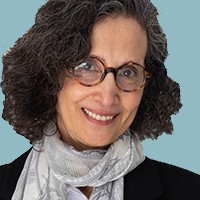
Eliane Metni
Lebanon
Eliane Metni is the Director of the International Education Association in Lebanon and a Postdoctoral Fellow at the University of Toronto.
Eliane Metni contributed with at chapter to the book What it Means to Be Human and spoke at the Global Bildung Day in March 2024.
L for Life Experience
We all make mistakes and we would never learn anything if we didn’t. So why are we so afraid of talking about mistakes and the life experience that comes with it?
Please bring a life lesson and the mistake leading up to it that you will be willing to share with the world. It may be big or small; what you learned from it is what is important.

Hela Nafti
Tunisia
Héla Bergaoui Nafti is an education consultant with expertise in teaching, curriculum development, and intercultural education. She contributed to teacher training, textbook development, and the reform of Tunisia’s English curricula (Education Act, 2002). Certified by the Council of Europe and the British Council, she trains educators through UNESCO’s History Circles and serves on the World Council on Intercultural and Global Competence. Héla is actively involved in civil society, leading TEARN and participating in global initiatives like the Global Partnership for Education (GPE) and Bridge 47. She fosters intercultural dialogue through programs like the Stevens Initiative Storytelling course and the J-MED project, and she is the vice president of Solidarité Laïque Tunisie.
A cross cultural vision of education
In my presentation, I will be talking about my long experience in education and the passion that has grown along my career.
As a consequence, I have taken part in all the reforms, innovations and actions that targeted improvement in education.
My privileged area is global education and today, we are in the process of developing a think tank in both Tunisia and France to help ensure a sustainable future where human rights values, respect and exchange between cultures would be main objectives .
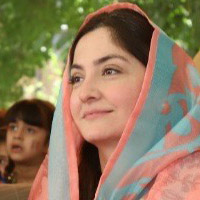
Nargis Zadran
Afghanistan & the US
Nargis Zadran, an experienced education practitioner who has advocated for marginalized communities in Afghanistan for 15 years. She has held leadership roles in national and international organizations and contributed to the development of Afghanistan’s national curriculum.
After evacuating, Nargis supported Afghan refugees at Fort McCoy, helping establish learning centers. She now serves as Education Director for Educate Girls Now, working to provide schooling for Afghan girls who are banned from education. She also teaches ESL at Columbia College and is an active member of the Rappahannock Rotary Club.
Beyond her work in education, Nargis has been actively supporting Afghan refugee families and children in Stafford County Schools. She has brought much-needed attention to their unique needs, shaped by the trauma of displacement and war, promoted cultural awareness, and helped these children find a sense of belonging both in the school system and in their new country.
From Education to Empowerment: How We Relate and Rise Together
The situation of women in Afghanistan should not be a concern for Afghans alone—it is a global issue. We are all interconnected. The denial of women’s rights in Afghanistan sets a dangerous precedent that affects us all. Women’s rights are universal—when one woman is denied her rights, the impact resonates worldwide.
Investing in girls’ education in Afghanistan is not just about shaping their future, but about shaping the future of Afghanistan and the world. One empowered girl creates a ripple effect, transforming families and communities. We must unite for women everywhere and rise together.
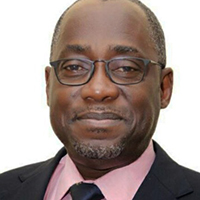
Folarin Gbadebo-Smith
Nigeria
Folarin Gadebo Smith is Director General at the Nigerian Institute for social and economic research, he is also trained as a surgeon and has spent a number of years as a politician in Nigeria.
https://www.linkedin.com/in/folarin-gbadebo-smith-58668569/.
M for Mental Moddels
Mental models allow us to make sense of the world–except when they don’t. How do mental models help us and how do they inhibit our opportunities for improvements?.
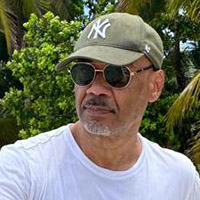
Christopher Mbanefo
Nigeria & Switzerland
Christopher, a seasoned innovator and aerospace engineer with a multicultural (Nigerian / Swiss) background, leads YASAVA Solutions SA and OXÏ-ZEN Solutions LLC. His expertise spans 30+ years in aviation, IT, and renewable energy, pioneering sustainable solutions like blockchain-enabled Carbon Balance. He advocates for global collaboration in science and sustainability, residing in Switzerland with his family.
What do we have in common with a Fish?
My father asked me the above question when I was a cocky teenager. The question confirmed in my mind that my Dad and his generation had certainly lost it, as my science-driven ‘knowledge’ clearly sees so many differences, that make any commonality between a fish and myself a fraction of the differences. He then proceeded to light up the infinite depth and beauty of the question.
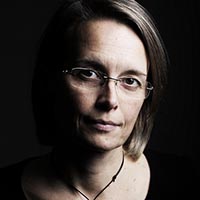
Lene Rachel Andersen
Denmark
Lene is an economist, author, and futurist. She is a member of the Club of Rome, initiator of the Global Bildung Network, the author of The Nordic Secret, and the editor of the book What it Means to Be Human.
Lene’s website: https://www.lenerachelandersen.com/
N for Nutrition
We live in an absurd world where many of the poorest people in the richest parts of the world are overwheight because our economic system has become so efficient at producing calories. Instead of producing healthier food, the same part of the world is now producing Wegowy and Ozempic to bring the weight down.
How do we actually relate to food and nutrition these days?

Mark Aink
The Netherlands
A climate advocate, brand activist, and founder of NATIVE circles and Decade Of Action, Mark is leading a movement that merges science, indigenous wisdom, and creative innovation to accelerate regeneration. Through his work, he’s building a cultural shift—where farmers, scientists, entrepreneurs, and visionaries inspire action and drive change, towards an ecology economy.
We Are The ReGeneration. Resolving the connection crisis.
We’re not in a climate crisis, we’re in a connection crisis. Everything is interconnected and interdependent. We are nature.
The root of our current problem is that we behave as if we don’t belong, as if we are not part of this planet.
We are the generation that can change this; that can move towards a culture from degeneration to regeneration. We work with the contagious energy of pioneers that are rebuilding our food system, who are embodying the change that is needed to change that culture. We find these regenerative pioneers, connect them, amplify their story, accelerate the movement and, in doing so, bring about the change we need.. When all raindrops unite to form a wave, change becomes inevitable.

Nadja Pass
Denmark
Nadja Pass is the co-creator of Concopia and an acclaimed civic designer, writer and salonnière.She has worked with a wide array of museums rethinking the way visitor engagement, various state departments in rethinking politics and the Danish Government in reevoking rhetorical citizenship.
Concopia – Reconnecting Humanity through Conversations
An introduction to Concopia – a card deck of curiosities and questions that encourage us to rethink and reenchant the world. Nadja will share her call to get together, have vibrant conversations and respond to the challenges of our time with zeal and ingenuity. And share some key questions.
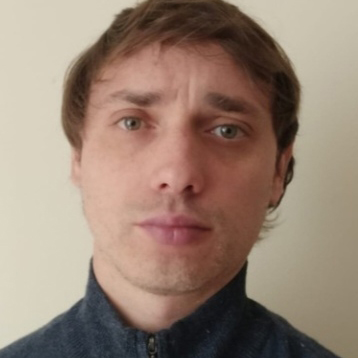
Diego Galvalisi
Uruguay
Pathfinder, peace seeker, Homo sapiens. Born in Uruguay around neoliberal times. Now around Europe. Political “scientist,” focused on Theory of Change, trying to contribute to global consciousness in these troubled, emergent times. In the search of understanding where we come from, where we are, and where we should go as a civilization.
O for Openendedness and what it means to be human
The capacity for true openness—the good kind—means looking forward without attempting to contain the future, yet without letting it slip away. Control and predictability, hallmarks of modern sensibility, can clash with the randomness of reality, hindering possibilities for transformation. Conversely, naive openness, characteristic of postmodern sensibility, can lead to unforeseen negative outcomes, and waiting for things that may never come.

Silvia Zimmermann del Castillo
Argentina
Silvia Zimmermann del Castillo is the co-president of the Club of Rome, and she is an Argentinean writer, philosopher and international lecturer. She was a disciple and collaborator of the Argentine writer Jorge Luis Borges with whom she studied ancient Anglo-Saxon and Icelandic literatures. She studied Social and Cultural Anthropology at the École Pratiques des Hautes Études, La Sorbonne, Paris and Philosophy at the University of Buenos Aires.
Relating
More info on its way…
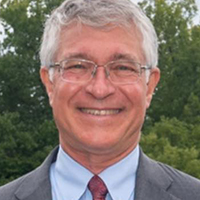
Phil Steck
United States
Phil is a member of the New York State Assembly and its Health, Insurance, Transportation, Judiciary, and Labor Committees. His major legislative interests include single-payer health insurance (Medicare for All), rebuilding the infrastructure of Upstate New York, and increased funding for public education.
An update from the political landscape in the US
While Trump, Musk, and Vance seem to be tearing the US administration and the previous global order apart, Bernie Sanders is traveling across the US and is speaking up against the oligarchy to tens of thousands of people. What is actually going on in the US, and where is the rest of the political opposition?

Heidi Steltzer
United States
Dr. Heidi Steltzer is a scientist, theologian and mystic who has studied global environmental change in High Mountain and Arctic regions for thirty years. She is now completing a Masters Degree in Theology and founded the Center for Earth Theology to explore how relationship is essential for life on Earth.
Centering relationship amid apocalypse in the United States
More info on its way…

Sally Adnams Jones
Canada
Sally is a teacher, an author, an expressive arts therapist, a creativity coach, and an artist.
From Polarization to Polarity – the relational synthesis of Yin and Yang, as personal and political value sets
Sally honours the ancient teachings of the Tao as a contemporary understanding of the current fragmentation of personal and political dynamics; from dating difficulties, to the gender wars, to political tensions between nanny-state, social democracies, and the right wing rise of fascism.
